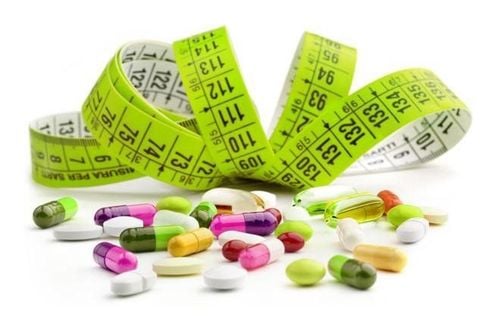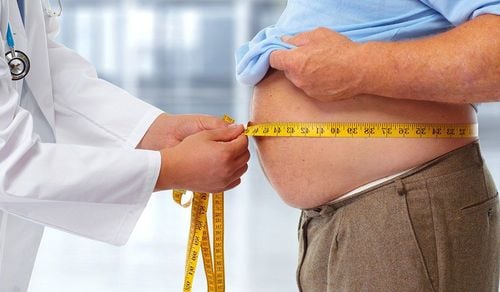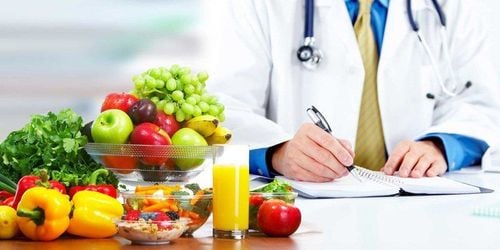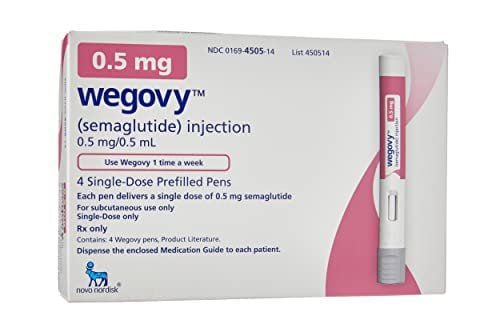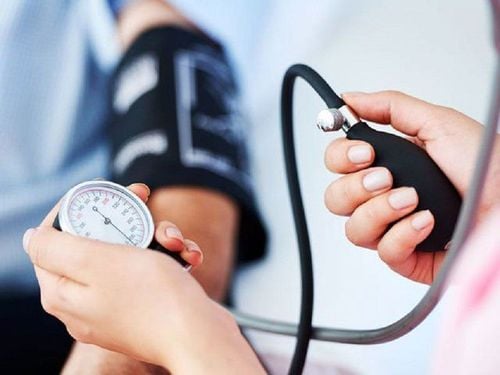This is an automatically translated article.
The article was written by MSc. Quach Thanh Dung - Head of Internal Oncology Department, Department of Internal Oncology - Vinmec Times City International HospitalMost women believe they must change their diet to ensure good results after breast cancer treatment. However, a healthy diet is just one of many factors that affect the immune system. Exercise and stress management are equally important in improving overall health and well-being.
1. A Guide to a Healthy Diet
First of all, there is no single food or supplement that acts as a "magic bullet" to prevent breast cancer from coming back. The National Cancer Institute guidelines for cancer prevention can be used to reduce the risk of breast cancer recurrence. These principles include:+ Increase intake of fruits, vegetables and whole grains
+ Reduce fat to less than 30% of calories
+ Minimize processed, pickled, smoked foods
+ Achieving and maintaining a healthy weight
+ Limit alcohol intake
Fruits, vegetables and whole grains Fruits, vegetables and whole grains are known to contain photochemicals with antioxidant properties and prevent cancer. We recommend eating five or more servings of fruits and vegetables per day. Cruciferous vegetables (broccoli, cauliflower, kale, cabbage) are especially rich in photochemicals. Extensive research has been done at Johns Hopkins Medicine on the nutritional value of broccoli sprouts.
Whole grains are unprocessed foods that are high in complex carbohydrates, fiber, vitamins, minerals, and photochemicals. Eating more fiber may have positive benefits by altering the hormonal activities of breast cancer and other hormone-dependent cancers. Daily fiber intake should be 25 to 30 grams of insoluble and soluble fiber.
Whole foods in the plant family + Grains: Wheat, rye, oats, rice, corn, barley
+ Green vegetables: Lettuce, spinach, Swiss chard, beets. ..
+ Vegetables: Broccoli, cabbage, radish, cauliflower, kohlrabi, bok choy, watercress, bok choy, kale, broccoli
+ Other vegetables: Celery, parsley , dill, carrot, parsley, garlic, onion, chives, leek, eggplant, tomato
+ Legumes: Soybeans, peas, chickpeas, peanuts, dried beans (chickpeas, black-eyed peas), lentils

There are many people who are concerned that eating soy products after having hormone receptor-positive breast cancer will increase the risk of disease recurrence. There have been conflicting studies on soy use over the years.
Overall, natural dietary soy in the form of soy milk, bean sprouts, tofu or tofu appears to be safe and can offer significant health benefits when it replaces dairy sources and animal proteins.
However, soy in concentrated form such as pills, powders, and supplements has the greatest potential for estrogen activity and should probably be avoided by those who have been diagnosed with hormone receptor-positive breast cancer. .
+ Gourd vegetables: pumpkin, squash, cucumber, cucumber, watermelon.
Trắc nghiệm: Những lầm tưởng và sự thật về ung thư vú
Ung thư vú có tỷ lệ tử vong cao nhất ở nữ giới khiến họ rất lo sợ bản thân mắc phải căn bệnh này. Tuy nhiên, không ít chị em có những hiểu biết thái quá về ung thư vú. Thử sức cùng bài trắc nghiệm sau sẽ giúp bạn loại bỏ được những nghi ngờ không đúng về căn bệnh này.
Bài dịch từ: webmd.com
Foods containing photochemicals that fight cancer + Broccoli
+ Phenolic compounds: Garlic, green tea, soybeans, cereals, cruciferous vegetables, tea leaves, legumes, cucurbits, licorice root, flaxseed
+ Flavanoids: Most fruits and vegetables (crucifers, garlic, citrus fruits, tea leaves, legumes, cucurbits, sage , camphor, dill, basil, mint)
+ Foods containing Organo-sulfur: Garlic, onions, leeks, shallots, cruciferous vegetables
+ Foods containing Isoflavones : Soy, assorted beans, flaxseeds
+ Carotenoid foods: Dark yellow/orange/green vegetables and fruits
Fat recommendations There is controversy about the role of dietary fat in promoting growth breast cancer development. Several animal studies and epidemiological data have suggested that fat consumption may initiate breast cancer development. We recommend:
+ Limit your intake of highly saturated foods such as beef, lamb, offal, cheese, cream, butter.
+ Reduce foods that contain trans fatty acids, such as baked goods, crackers, and processed margarine.
+ Increase your intake of poultry, fish and Vegetarian Protein (legumes and lentils). Increasing your fish intake to three times per week will increase your intake of omega-3 polyunsaturated fats. Research has suggested that these fatty acids may inhibit the growth of breast tumors.
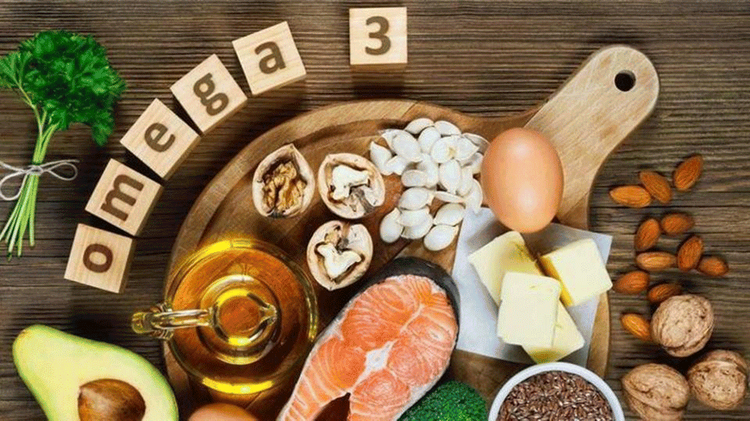
Reach a healthy body weight Women who are overweight or obese have higher circulating estrogen levels than women of ideal body weight. This can be important for anyone trying to reduce their risk of future recurrence of hormone receptor-positive cancer, even after they have been treated for the cancer.
Overweight or obese is defined by a body mass index (BMI) greater than 25 or 30, respectively. BMI chart can help you quickly calculate your own BMI, based on height and weight. Many studies have demonstrated an association between body mass index and breast cancer in postmenopausal women. Therefore, you should lose weight by changing your diet first, then exercise.
Alcohol use Several studies have shown an association between alcohol consumption and breast cancer. The role of alcohol in the development of breast cancer remains unclear. Dietary guidelines recommend that a woman drink no more than one drink per day. Women diagnosed with breast cancer may consider avoiding alcohol.
In summary, nutrition for cancer patients in general as well as breast cancer in particular is very important. Staying in your best health is very important after breast cancer treatment. Controlling your weight, staying physically active, and eating right can help lower your risk of breast cancer recurrence, as well as help protect you from other health problems.
Please dial HOTLINE for more information or register for an appointment HERE. Download MyVinmec app to make appointments faster and to manage your bookings easily.





